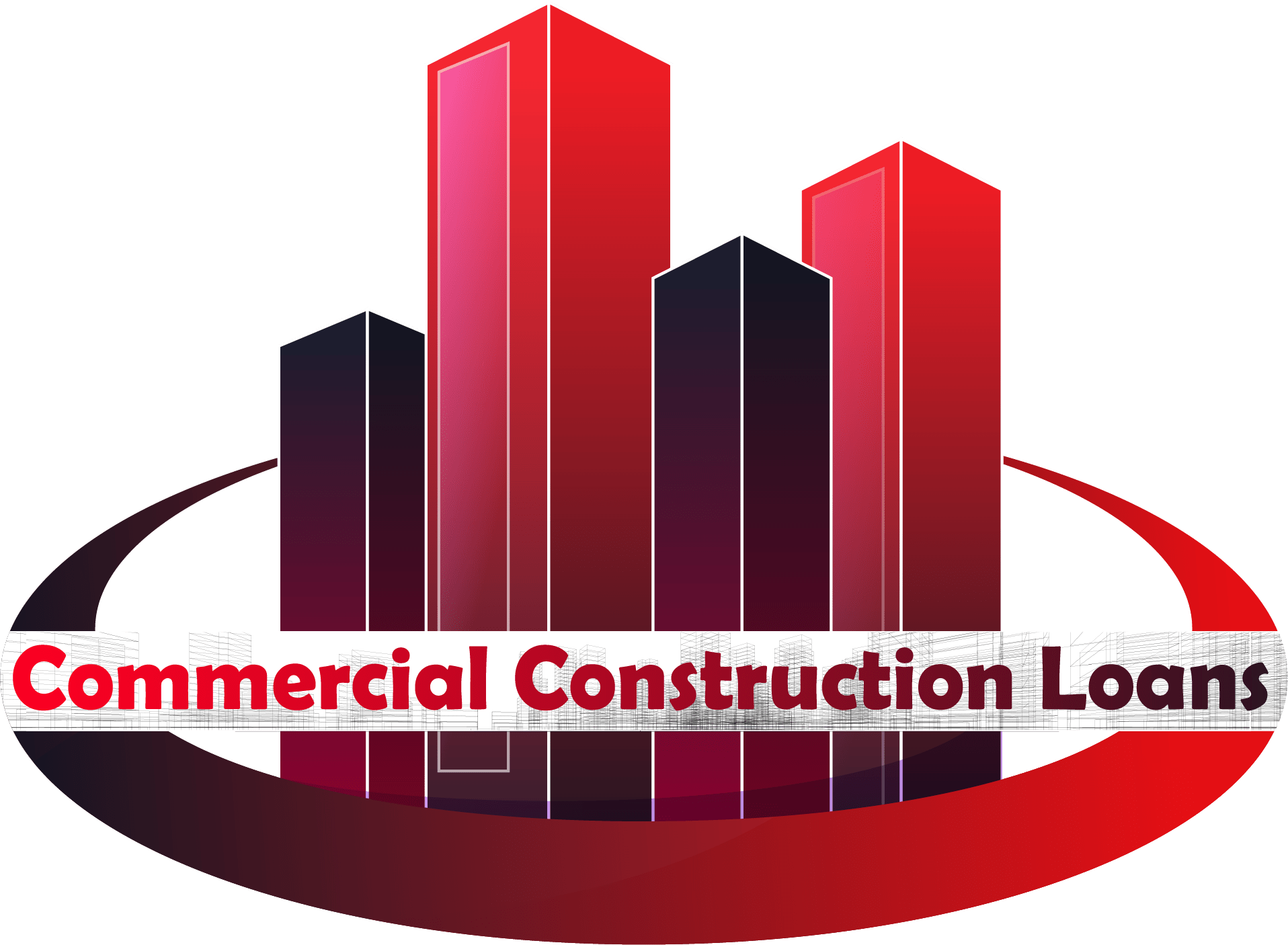More than 40% of real estate investors struggle to obtain standard loans, according to a study. Typically, this is because insurance rules are overly restrictive and approval processes are too lengthy.
This means that many good opportunities to buy business property are lost. You can get a loan from a “hard money lender for real estate” in a unique way. They provide you with cash quickly, based on the value of the property, rather than your credit score or income.
With over 30 years of experience as underwriters and a network of more than 200 private lenders and investors, these lenders are uniquely positioned to provide quick funding for their clients’ real estate projects.
What is a Hard Money Lender for Real Estate, and How Does It Work?

Defining the “Hard Money Lender”
A “hard money lender” operates differently from “traditional banks” in how they provide money. A “traditional mortgage” lender looks at your “credit score,” income, and lengthy financial background. A “hard money lender,” on the other hand, looks at the value of the “investment property” as collateral. This is sometimes referred to as “asset-based lending,” where the actual asset being loaned serves as collateral. These options are primarily “private money loans” that come from individuals, business groups, or specialized lending companies, rather than the complex systems of large banks.
As a result of this fundamental difference, “loan terms” are much more flexible and, most importantly, approval times are much shorter than for “traditional loans.” Due to the focus on “collateral” and “equity” in the property, even individuals with poor credit can secure significant “private financing” if their investment property is worth enough. “Fast approval” is a considerable draw that makes hard money a popular choice for real estate deals that require quick completion.
How a “Hard Money Loan Works”
The process of getting a hard money loan is simplified to be as quick and easy as possible. The user typically initiates the process by completing an application. On this form, they give information about the “investment property” and their project. The lender then conducts a comprehensive “property valuation” to determine the property’s current market value and, more importantly, its after-repair value (ARV) if it’s a rehab project. The “loan amount” is primarily based on this value, which is typically expressed as a percentage of the ARV or current value. This is referred to as “loan-to-value” (LTV) or “loan-to-ARV” (LTARV), typically ranging from 60% to 80%.
The lender sends a “loan offer” with the terms, interest rates, and fees once the appraisal is done. One significant benefit of hard money is that it can be used quickly. Because the focus is on the asset’s actual value and the project’s ability to move forward, the “underwriting process” proceeds much faster than with standard loans. “Money loans” usually have short “loan terms” of 6 months to 3 years, which shows that they are meant to be used as short-term loans for things like buying a house, fixing it up, and quickly selling it or turning it into a long-term loan. This short term is ideal for fix-and-flip projects, bridge loans, or rapidly expanding a portfolio.
Why Choose a Hard Money Lender for Your Real Estate Investment?

Like any other type of loan, “hard money loans” have pros and cons for people who are “real estate investors.” It is essential to know these “pros and cons of hard money loans” to make wise choices.
Pros:
- Speed and efficiency: This could be the most crucial benefit. “Quick close” features are essential for “real estate investment” options that need to be done quickly, like auction purchases or markets with much competition. Typically, hard money lenders can accept and fund loans in days, rather than weeks or months. This way, you won’t miss out on good deals.
- Flexibility: A “traditional lender” is very strict about having a perfect “credit score” and a long financial history. Hard money lenders, on the other hand, are much more flexible. They can often work with borrowers who have bad credit, income from self-employment, or unusual financial profiles. This means that a broader range of buyers can get loans.
- Focus on the Asset: The main thing that determines a hard money loan is the “investment property” itself, especially its value and potential. This “asset-based lending” method means that a borrower with a bad credit past can still get a loan if they have an attractive property that has a lot of profit potential.
- Outstanding for “Bridge Loans”: When you need “short-term financing” to fill in funding gaps, “hard money loans” are the best way to go. For example, they can help you get the money you need to buy a new home. You can also wait for a traditional loan to close on another property or have them give you money to fix up a property before you turn it into a long-term mortgage.
- Worked well in specific situations: Hard money is great for fixing up foreclosed homes, making repairs right away, and deals that need cash right away. Hard money differs in that it can be used to move quickly and fund projects with special needs.
Cons:
- “Higher Interest Rate”: It’s important to acknowledge that “hard money loans typically” come with a “higher interest rate” compared to “traditional mortgages.” This premium reflects the speed, flexibility, and increased risk taken by the private lender.
- Fees: Beyond interest, borrowers can expect to pay various expenses, including “origination fees” (often expressed as “points,” where one point equals 1% of the loan amount), administrative fees, and closing costs, which can add to the overall cost of the loan.
- Shorter “Loan Terms”: “Hard money loans typically have shorter loan terms,” often ranging from 6 months to 3 years. This necessitates a clear and well-defined exit strategy (e.g., selling the property, refinancing with a traditional loan) to avoid penalties or default.
- Risk of Foreclosure: If the “money loan work” doesn’t go as planned – perhaps due to unexpected construction delays, market downturns, or an inability to execute the exit strategy – the higher interest rates and shorter terms can quickly lead to default and the risk of foreclosure, as the property secures the loan.
When Hard Money is the Right Fit for “Real Estate Investors”
“Hard money lending” really shines in certain situations, which makes it an essential tool for savvy “real estate investors”:
- Projects to fix up and sell: Whether it’s “new construction,” “ground-up construction,” “remodeling,” “renovation,” or a complete “rebuild,” hard money gives you the quick cash you need to buy properties and fix them up so you can sell them quickly.
- Getting property quickly: When a great deal arises that requires immediate cash to close, such as a probate sale or an off-market opportunity, buyers can act promptly with hard money.
- Loan borrowers with unique financial situations, such as self-employed individuals, those who have recently gone bankrupt or had their home foreclosed, or buyers with limited proof of income, can often secure money through hard money when other options are unavailable.
- Opportunities in “commercial real estate”: Hard money can help commercial properties that need to deploy capital for acquisition, repositioning, or growth quickly. This is because it can provide the flexible financing required to capitalize on time-sensitive opportunities. This also includes protecting “distressed assets” that require immediate attention and funding to be restored.
The Step-by-Step Process: Engaging a Hard Money Lender
A “hard money lender for real estate” can help you get the money you need quickly for your business projects. This simple, step-by-step guide will help you get through the process.
Step 1: Define Your “Investment Property” Strategy and “Loan Amount” Needs
It’s essential to be clear before talking about any loan. Set clear goals for your real estate business to begin. Are you going to fix up and sell the house, buy it and keep it for a long time, or build it from scratch? Each plan has different effects on money and needs a different approach.
Next, get a clear picture of how much of a loan you’ll need. This requires a thorough examination of the property and careful budget planning, which should include the costs of purchasing it, renovating it, and holding it (such as taxes, insurance, and utilities during the holding period), as well as any potential unexpected expenses. Don’t forget to include the amount of money you’ll put down or your share of the stock.
Clearly state your exit plan. How are you going to pay back the hard money loan? Will you sell the house (fix it up and flip it)? Or are you going to get a long-term debt from a “traditional lender” and buy the house and keep it? A clear exit plan demonstrates that your project is viable and that you can repay the loan.
Step 2: Researching and Vetting “Hard Money Lenders for Real Estate”
When choosing a hard money loan, it’s essential to do your research. There are many choices on the market, and picking the right partner can have a significant effect on the success of your project. Look for loans with a history of success. To do this, look at their background, the kinds of projects they usually fund, and reviews from past clients.
Check out networks like ours, which have more than 200 “private lenders and investors.” As an underwriter for 30 years, we’ve built partnerships with trustworthy partners who know the ins and outs of different real estate strategies. Don’t be afraid to ask for references and read online reviews carefully to get a sense of how reputable a loan is. A trustworthy lender will be open and honest about their methods, fees, and what you can expect from them.
Step 3: Preparing Your Loan Application & Documentation
Unlike traditional mortgages, money lenders care more about the value of the asset than the applicant’s credit score. However, they still require substantial information to assess the risk and the project’s potential. The approval process can go faster if you are organized and give a clear, concise explanation of your project.
This is what an investor will usually want:
- About the property: The full address, high-quality photos, a recent appraisal (if available), and a thorough estimate of the After Repair Value (ARV) are all part of this.
- Project Goals and Costs: A clear outline of your plans for building or remodeling, with prices broken down by material, labor, and permit types.
- Experience of the Borrower: Details about the real estate investments you’ve made in the past, showing off your skills and track record.
- Financials: Lenders will still want a general idea of your financial stability, such as bank records and maybe even a credit report to see if you have any significant debts. This is less of an in-depth look than a traditional bank would do.
- Proof of Funds: Paperwork that shows you have enough money for the down payment, closing costs, and any savings that are needed.
Here’s a handy checklist
| Document Type | Description | Why it’s Needed |
| Property Address & Photos | Clear images and exact location of the investment property. | Visual assessment and verification of the property. |
| Property Appraisal / ARV Report | Professional valuation of the property’s current value and its estimated value post-renovation. | To determine loan-to-value (LTV) and loan-to-ARV (LTARV) ratios and assess collateral. |
| Project Scope & Budget | Detailed breakdown of all planned work, including materials, labor, and timelines. | To evaluate the feasibility of the project and ensure adequate funding. |
| Borrower Experience Resume | Summary of past real estate projects, showcasing your expertise. | To assess your capacity to execute the investment strategy successfully. |
| Bank Statements / Proof of Funds | Documentation verifying available cash for down payments, reserves, or closing costs. | To confirm your financial commitment and ability to cover initial expenses. |
| Purchase Agreement (if applicable) | Copy of the signed contract for the property acquisition. | To verify the purchase price and terms of the acquisition. |
| Articles of Organization / LLC Docs | Legal documents are required if the property is held under an LLC or other entity. | For legal and compliance purposes, and to identify the borrowing entity. |
Step 4: Understanding “Loan Terms” and Fees
You should make sure you fully understand the loan terms and fees before you sign. Being honest with your employer is very important.
- Interest Rates: You can expect a “higher interest rate” than with a standard mortgage. Rates for hard money loans can be anywhere from 8% to 18% or more, based on the lender, the type of property, and the borrower. Most of the time, these are calculated as interest-only payments, which means that your monthly payments only cover the interest and not the capital.
- Points are fees that the lender charges at the start of the loan process. They are usually between 2% and 5% of the loan amount. One “point” is equal to 1% of the loan.
- Other Fees: Also, keep in mind that there may be extra fees at the closing, like evaluation fees, legal fees for preparing documents, title insurance, and sometimes administrative fees.
- Fees for Paying Off the Loan Early: If you pay off some loans early, you may have to pay fees. Always make sure this fits with how your loan is set up.
- Payment Plan: For the first part of the loan term, most hard money loans only require payments on the interest. At the end of the term, the capital is due in a single large payment. Few lenders offer amortized plans for short-term hard money, but some do.
Step 5: The Underwriting and Closing Process
The “underwriting process” begins once your application is submitted and accepted. With 30 years of experience as an insurer, we know how to speed up this step so that the whole process from application to funding goes smoothly and quickly.
The lender will conduct a full “property appraisal” to verify the property’s value and a “title search” to confirm it has no liens or other claims. A careful “legal review” will be done on all legal documents to keep everyone safe.
The most important benefit here is the “funding timeline.” Fast “rapid closing” is what hard money loans are known for. Hard money deals can often close in just a few days or weeks, while “traditional loans” can take weeks or months. This lets you take advantage of chances that need to be acted on quickly. Because this process moves faster, many buyers turn to hard money when they need money quickly.
Beyond “Hard Money Loans”: Other Financing Options for “Real Estate Investors”
In some cases, “hard money loans” are the fastest and most flexible way to get money, but they are not the only way that “real estate investors” can get money. We know a lot more than just hard money. We also see a lot about “alternatives to hard money loans” that might be better for you based on your project, your finances, and your long-term goals.
“Alternatives to Hard Money Loans”
As an example of a loan type that is different from “hard money loans” and that we can help with, here is a short list of them:
- DSCR Loans: Hard money loans are based on the property’s value, whereas DSCR (Debt Service Coverage Ratio) loans are based on the property’s rental income. Because the loan is based on the property’s ability to pay back the loan, they are perfect for buy-and-hold owners with properties that make money.
- USDA B&I Loans: These are government-backed loans designed to help rural businesses grow by offering favorable terms. They are very different from hard money, which is usually used to buy homes in cities or suburbs.
- SBA Loans: Another type of government-backed financing is Small Business Administration (SBA) loans, which provide financial assistance to small businesses, including real estate companies. They have stricter requirements for who can get them and take longer to approve, but the terms are longer and the interest rates are lower than hard money.
- FHA Commercial Property Investment Loans: These are special loans for commercial properties that are allowed by the FHA. They have benefits and requirements that are different from how hard money is usually used.
- Construction Loans: Hard money can be used to pay for new construction or building from scratch, but dedicated construction loans are made just for these kinds of projects, and their draw schedules are often timed to match project milestones. They can be short-term, like hard money, but their underwriting goals are generally different.
- Term Loans: These are standard ways to get longer-term loans, and the terms of the payments are usually set. They are more stable than hard money and have lower rates, but they are slower and less flexible.
- No-Doc Loans / Lite-Doc Loans: These options serve as a middle ground between traditional loans and hard money, requiring less paperwork than conventional loans. Even though some proof is still needed, it’s not as much as with full-documentation loans.
- Stated Income Loans: Similar to no-doc loans, these options rely on the borrower’s stated income rather than extensive documentation, making it easier for investors who are confident in their ability to secure funding quickly.
- FHA Construction Loans: These are a good choice for owner-occupant new builds because they combine the benefits of FHA loans (like lower down payments) with the flexibility of a construction loan.
- Line of Credit: As a flexible form of funding, a line of credit lets borrowers take out money as needed up to a certain cap. This makes it suitable for ongoing projects or sudden costs, and it gives borrowers more options than a single hard money loan.
Not to mention “traditional loans” (conventional mortgages), which have the lowest interest rates but also the strictest credit score, debt-to-income ratios, and extensive documentation requirements, making them very different from “hard money lenders for real estate.”
When to Consider Our Financial Consulting Services
This complicated world of “flexible financing” and “specialized loans” can be hard to navigate. This is where our full range of “financial consulting services” really shines. We are both “correspondent lenders” and “table lenders,” so we don’t just offer one type of answer. We can help you determine the best type of loan for your needs by providing personalized financial advice.
We don’t just handle applications as part of our project. We can help you determine the best way to finance your project by reviewing your finances and providing expert advice. We excel at connecting people in need of loans with the ideal “money lender” from our extensive pool of over 200 private lenders and investors. We offer custom solutions to make sure that your real estate business projects are funded quickly and correctly, whether you need government-backed financing, a conventional loan, or something else.
Partnering with CommercialConstructionLoans.Net: Your Advantage in Real Estate Financing

CommercialConstructionLoans.Net isn’t just another place to borrow money; we’re your real estate loan partner. As both correspondent lenders and table lenders, we offer a unique blend of market flexibility and scope that no one else can match. This means that we can either fund your project ourselves or quickly get you a loan from one of our trusted partners, making sure you always get the best terms.
Thirty years of experience are what we’re built on. After 30 years of experience as underwriters, we have extensive knowledge of loan structures, risk evaluation, and market dynamics. Because we know so much about the financial process, we can make it simple and easy for all of our clients, regardless of their level of experience.
Our massive group of over 200 private lenders and investors is what makes us stand out. This broad reach gives you an edge over other people because it lets you get a lot of different types of loans, such as hard money loans, DSCR loans, construction loans for new construction or remodeling, fix-and-flip projects, and rebuild projects. We are experts in investment and income-generating property, as well as real estate financial consulting. This means that we can help you with any project, no matter how big or small, complicated or simple it is.
Through our referral programs, we also offer exclusive and non-exclusive broker partnerships. Both new and experienced brokers can work with a trusted partner. This dedication to building strong relationships applies to all clients, ensuring that you will receive customized financial advice that is tailored to your needs.
Are you ready to start investing in real estate? Contact us right away to set up a one-on-one meeting, and we’ll help you find the best funds for your next project.
Conclusion
It’s often faster and more flexible to get a hard money loan than to get traditional financing. This is ideal for real estate investors seeking to capitalize on short-term opportunities and achieve their investment property goals. We’ve discussed how asset-backed loans can transform various situations, from quick fix-and-flip projects to significant funding gaps.
We want you to trust CommercialConstructionLoans.Net with your business. We offer the best financial advice, drawing on 30 years of experience reviewing loans and an extensive network of over 200 private lenders and investors. We’ll help you find the best money loan and the best way to get the money you need, and we’ll also explain the process. Lack of money shouldn’t stop you from buying a house.
Talk to CommercialConstructionLoans.Net right away about your next real estate project to learn how a hard money loan or other custom solutions can help you make your goals come true.
FAQs
Can a hard money loan be used to purchase a primary residence?
In most cases, no. Most of the time, hard money loans are only used for business or investment properties, not for buying a primary residence. This is because rules about owner-occupied loans have become tighter to protect consumers. Hard money lenders consider the value of the property as a means to generate income or sell it, rather than as a residence.
What is the typical down payment required for a hard money loan?
Hard money loans usually need a bigger down payment than regular mortgages. The exact amount depends on the lender and the property. For the most part, investors will need to put down 10% to 30% of the property’s After Repair Value (ARV). The exact percentage often relies on how experienced the borrower is, the type of property, and how risky the project is seen to be.
How quickly can a hard money loan close compared to a conventional loan?
People love how fast hard money loans are. A conventional loan can take 30 to 60 days (or even longer) to close because of all the paperwork and underwriting that need to be done. A hard money loan, on the other hand, can often be accepted and funded in as little as 5 to 14 days. This quick closing time is a big plus for real estate investors who need to act quickly on opportunities.
Are hard money loans “recourse” or “non-recourse” loans?
Most hard money loans are access loans, which means that if the borrower doesn’t pay back the loan, the lender can go after all of the borrower’s assets, not just the collateral property. Even though there may be some non-recourse options, they are not very popular in hard money lending and usually have stricter requirements or different terms. It’s essential to make this clear to your lender.
What happens if I can’t pay back my hard money loan on time?
If the client doesn’t pay back a hard money loan, the lender can start the foreclosure process on the property that was used as collateral. Because the terms are shorter and the interest rates are higher, defaulting can cost a significant amount of money and even mean losing the rental property. Some lenders may give options for longer terms, but these usually come with higher interest rates and extra fees. This makes it even more important to have a clear and actionable plan for when you want to stop paying.


Comments are closed